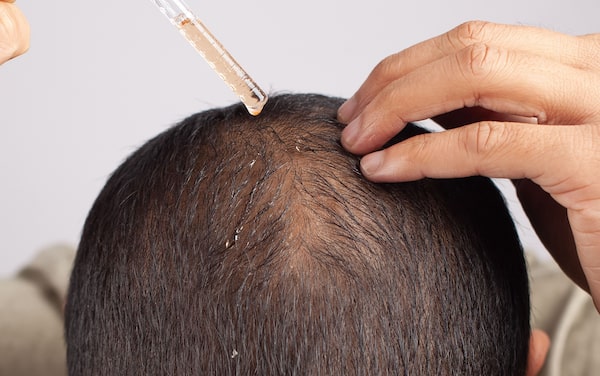Minoxi-NO! Possible Minoxidil Shortage on the Way
While a hair transplant can give a patient a full head of hair and a rejuvenated hairline, there are some people who are not ready to make the commitment (yet) to hair transplant surgery. One popular hair restoration treatment is minoxidil which is also referred to as Rogaine. Patients who use minoxidil on a regular basis need to know that there might soon be a shortage of the drug in the near future.

Rogaine – How Does it Work on Patients?
The way in which Rogaine promotes the regrowth of hair is not completely understood but medical experts consider minoxidil to be a vasodilator. However, the vasodilating, anti-inflammatory, and anti-androgenic effects of the drug might be a contributing factor in its success.
Even though the exact mechanism that causes minoxidil to work on the hair is not completely clear, there is a school of thought that it works by partially enlarging the hair follicles in the treated area and also elongating the growth phase of the hair on the scalp. If there are more hair follicles in the growth phase, it stands to reason there will be more hair growth on the scalp.
Minoxidil – Possible Shortage Revealed
A recent report revealed the news about a possible shortage of minoxidil which patients use to treat thinning hair and hair loss. The report also noted that minoxidil is starting to become difficult to find in certain areas of the country.
According to the American Osteopathic College of Dermatology, male pattern hair loss and female pattern hair loss impact nearly 50% of males and about 25% of women by the time they reach the age of fifty. Minoxidil is commonly used by patients experiencing male pattern hair loss and female pattern hair loss..
 These patients might have a problem finding the medication in certain parts of the country according to a new study conducted by a research team at George Washington University. The study showed that shortages of the thirty-day supplies of the drug are being reported in pharmacies located in the Maryland, Washinton, D.C., and Virginia metro areas.
These patients might have a problem finding the medication in certain parts of the country according to a new study conducted by a research team at George Washington University. The study showed that shortages of the thirty-day supplies of the drug are being reported in pharmacies located in the Maryland, Washinton, D.C., and Virginia metro areas.
According to Dr. Adam Friedman, professor, and chair of dermatology at George Washington University, “The study reveals a significant care gap resulting from shortages of this drug within the DMV, a gap that could translate to the national level. Interruptions in the drug can lead to less effective treatment, and, in some cases, psychological distress.”
Friedman pointed out that, even though minoxidil in a topical form has been approved for quite some time, a dermatologist found, in 2015, that a low oral dose of minoxidil might actually work better for patients. It should be noted that the oral version is not approved by the Food and Drug Administration for the treatment of hair loss. It is often prescribed by medical professionals for that purpose, which has led to an increase in patient interest regarding the drug. Oral minoxidil is currently approved by the FDA for use in treating high blood pressure.
As part of the research study, Friedman and his team of researchers contacted two hundred and seventy-seven pharmacies in the areas of Maryland, Viriginia, and Washington, D.C. These pharmacies included large national chains such as Walgreens, Giant, Harris Teeter, and CVS. The research team found that not all of the contacted pharmacies were able to provide a thirty-day supply of minoxidil written for a prescription in two different doses.
The results were as follows:
- Only 18% of pharmacies in Washington, D.C. had an availability of both doses for a thirty-day period.
- Only 23% of the pharmacies located in Northern Virginia were able to confirm they had both doses available in thirty-day supplies.
- Only 15% of pharmacies in Maryland were able to fill thirty-day supplies of both doses of the drug.
The possibility of a drug shortage could become an issue for dermatologists who are helping patients treat their thinning hair. If the supply of minoxidil becomes hard to find due to a shortage, patients might possibly need to discontinue their use of the medication if they cannot fill their prescription. If a person needs to stop using the medication, their hair loss will return to the same level as before they started to use minoxidil. Plus, additional hair loss could also happen due to the lack of taking the medication.
Minoxidil – What Should Patients Do?
If a person is worried about a shortage of minoxidil when it comes to treating their thinning hair, they should contact their doctor to inquire about this possibility. The doctor can help the patient determine the available supply of minoxidil in pharmacies near their location. The doctor can also inform the patient about other hair loss treatments including a hair transplant. While it might not be necessary for the person to make a change in their hair restoration treatment plan, they will have the necessary information to make an informed treatment decision.